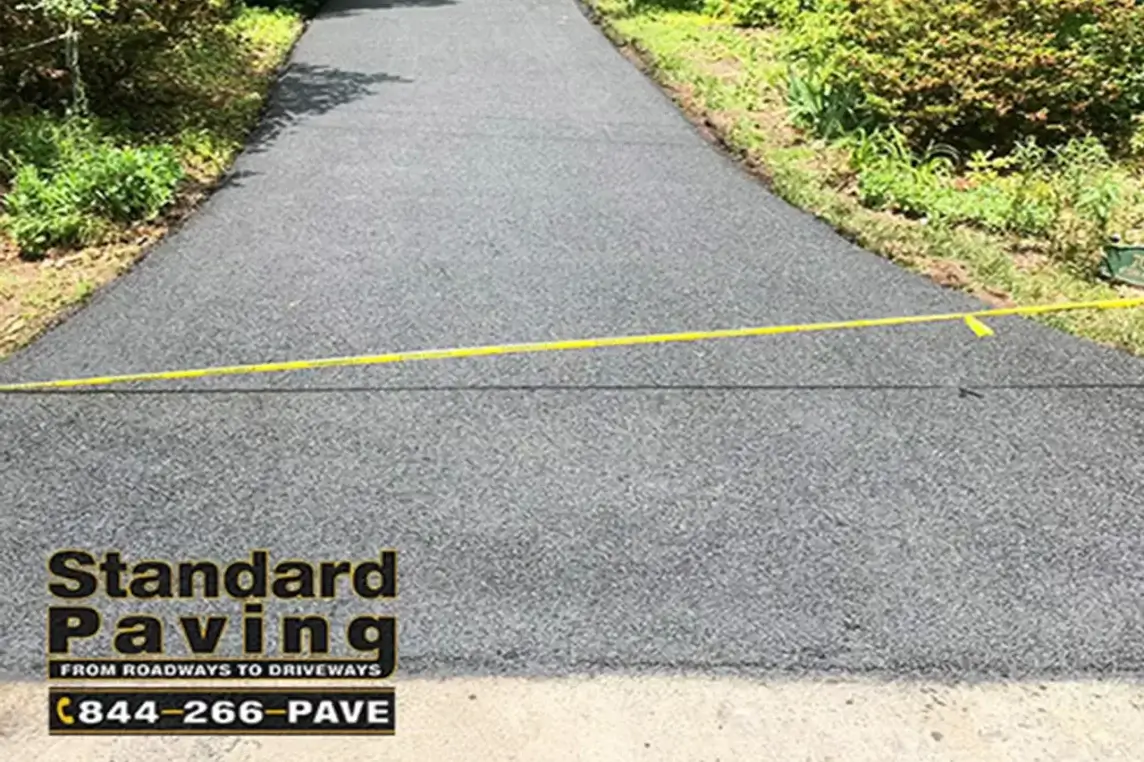Planning to upgrade or build a new driveway? Choosing the right asphalt mix is one of the most important decisions. You might be wondering if the type of asphalt mix is really that important. The answer is a big yes. The quality of the asphalt mix can make a big difference in the longevity and performance of your driveway.
The type of asphalt mix you use is vital to the success of your driveway project. Asphalt isn’t just one uniform material; there are different types of mixes designed for various purposes. For a driveway, you need a mix that’s durable, long-lasting, and suited to your local climate and usage needs.
In this discussion, you will get tips on choosing the best asphalt mix for a driveway project and how professionals can make this easy for you. Let’s start the discussion:
Considering Local Climate
Your local climate plays a significant role in determining the best asphalt mix for your driveway. If you live in a region with extreme heat, Hot Mix Asphalt is often recommended due to its ability to withstand high temperatures without deforming. Warm Mix Asphalt is a better option for those in cooler climates with frequent freeze-thaw cycles, as it performs well in cold weather and minimizes the risk of cracking. Asphalt Paving VA companies can provide valuable insights based on local weather patterns, helping you choose the right mix to ensure longevity and performance.
Assessing Traffic Load and Budget
Another critical factor is the amount of traffic your driveway will endure. High-traffic driveways require a more robust mix like Hot Mix Asphalt, which can handle the increased stress and wear over time. Conversely, if your driveway experiences minimal traffic, a standard mix should suffice. Budget is also an important consideration. While Cold Mix Asphalt might be the most cost-effective, it’s generally not suitable for a full driveway installation. Investing in a higher-quality mix like hot mix asphalt may have a higher initial cost, but it can save you money in the long run due to its durability. Asphalt driveway companies can help you balance quality and cost by providing detailed quotes and recommendations.
Get the Professional Advice
Choosing the right asphalt mix isn’t just about knowing your options; it also involves getting expert advice. Consulting with Asphalt Paving VA professionals can provide tailored recommendations based on your specific needs. These experts can assess your driveway’s conditions, consider your local climate, and offer insights on the best asphalt mix for your situation. Additionally, obtaining quotes from multiple companies ensures you get a fair price and work with a reputable contractor. Don’t hesitate to ask for references and reviews to ensure quality workmanship.
Why does professional asphalt mix matter?
Professional help can make your life easy, from selecting to missing it perfectly. Unfortunately, mistakes are common when you do professional work by yourself. A professional team can make your project easy by analyzing the project needs. Here we have some common reasons that will help you understand why professional asphalt mix is important:
- The right mix ensures your driveway can handle everyday wear and tear, as well as extreme weather conditions.
- A quality mix improves the overall performance of your driveway, from how well it handles water drainage to its resistance to cracking and potholes.
- The right mix can also impact the look of your driveway, giving it a smooth, polished finish.
- Choosing a professional-grade asphalt mix can save you money in the long run by reducing maintenance and repair costs.
How Standard Paving Can Help You?
At Standard Paving, we understand how important it is to choose the right asphalt mix for your driveway. With years of experience and a commitment to quality, we’re here to help make your project a success. Here’s how we can assist you:
- Our team will work with you to understand your specific needs and recommend the best asphalt mix for your climate, usage, and budget.
- We use only the highest quality asphalt mixes to ensure durability, performance, and a great finish for your driveway.
- Our skilled professionals handle every aspect of the installation process, ensuring that your asphalt mix is applied correctly and efficiently.
Conclusion
Selecting the right asphalt mix is an important step in ensuring the success of your driveway project. By considering your climate, traffic needs, and the quality of the mix, you can make an informed choice that will result in a durable and attractive driveway. And when it comes to expert advice and quality materials, Standard Paving is here to help.
Ready to get started? Contact us at Standard Paving today, and let’s work together to create the perfect driveway for your home. With our expertise and top-notch asphalt mixes, you’ll have a driveway that stands the test of time and enhances the curb appeal of your property.



